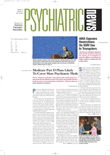A new type of psychotherapy created specifically to target symptoms of complicated grief appears to be more effective than interpersonal psychotherapy at helping patients recover after the death of a loved one.
Researchers at the University of Pittsburgh Medical Center are hopeful that complicated grief will be listed as a disorder in DSM-V, which is scheduled to be published around 2011.
Complicated grief occurs after the death of a loved one, and symptoms (which persist for more than six months after the death) include a sense of disbelief about the loved one's death, anger and bitterness over the death, yearning for the deceased person, and preoccupation with thoughts of the loved one, including distressing intrusive thoughts related to the death itself.
According to Katherine Shear, M.D., who is lead author of a study published in the June 1 Journal of the American Medical Association, complicated grief shares elements of major depression (sadness, guilt, and social withdrawal) and posttraumatic stress disorder (disbelief, intrusive images, and avoidance behaviors), but treatments typically used for these disorders don't work well for people with complicated grief. Shear is a professor of psychiatry at the University of Pittsburgh and director of the Panic, Anxiety, and Traumatic Grief Program at Western Psychiatric Institute and Clinic.
In addition, since complicated grief isn't listed in the DSM, many clinicians may misdiagnose patients who are experiencing traumatic grief with depression, Shear added. “Helping clinicians to identify complicated grief is crucial to successful treatment.”
Shear and her colleagues recruited 95 bereaved patients aged 18 to 85 through ads or professional referrals for treatment of grief from April 2001 through April 2004. To be included in the study, subjects had to meet a criterion for complicated grief, which the researchers defined as a score of 30 or more on the Inventory of Complicated Grief, a 19-item scale whose scores range from 0 to 76. The scale asks patients to rate the frequency of certain symptoms on a scale of 0 to 4, such as avoidance behaviors or feeling bitter about the person's death.
She then randomized the sample into two groups. The first group of 46 received interpersonal therapy (IPT) and the other 49 received complicated grief treatment (CGT), which Shear developed with her colleagues.
Both types of treatment were administered in 16 sessions for 19 weeks, on average.
All therapists were master's-level or doctoral-level clinicians with at least two years experience conducting psychotherapy.
IPT included discussion of how patients' symptoms related to their grief, according to the report. In addition, “the IPT therapist helped patients to arrive at a more realistic assessment of the relationship with the deceased... and encouraged the pursuit of satisfying relationships and activities,” the authors wrote.
CGT therapists helped patients recall stories of their loved one's death while the therapist tape-recorded the patient's recollections. Periodically, the therapist would ask patients to report their levels of distress.
Patients listened to the tape between sessions. Therapists tried to reduce distress levels during each session by “promoting a sense of connection” to the loved one.
These connections included imagined conversations with the deceased and a discussion of positive and negative memories about him or her. CGT therapists also asked patients to discuss what their plans and goals would be if their grief wasn't so intense.
All patients were independently rated before and after receiving IPT or CGT using the Clinical Global Improvement (CGI) scale, which measures clinical improvement from baseline on a scale of 0 to 7.
Shear found that 51 percent of those who received CGT reported “very much improvement” (CGI score of 1) or “much improvement” (CGI score of 2) in their clinical functioning, whereas just 28 percent of those receiving IPT did.
Researchers also found that 55 percent of the CGT group experienced a 20-point improvement on the CGI compared with 25 percent of the IPT group.
Shear noted that about 45 percent of her sample was taking an antidepressant throughout the study, but that there was little difference between the two groups in the number of patients using such medication.
“These people were on antidepressant medications at the time they were recruited for the study,” and it would have been unethical to ask them to stop taking the medications for the sake of the study, she noted.
“People who were on antidepressants had the same mean CGI score as those who weren't on medications,” she added, “so the medications didn't seem to relieve symptoms of complicated grief.”
The study was supported by grants from the National Institute of Mental Health.
JAMA 2005 293 2601
